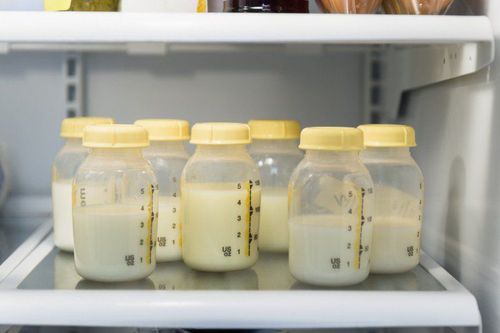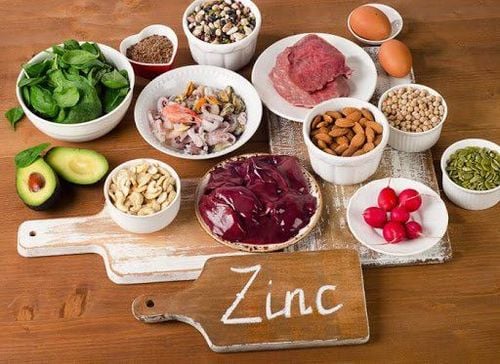A small amount of mucus in a baby’s stool may not be a big concern if there are no additional abnormal symptoms. However, if your kid frequently passes mucus in their stool or experiences diarrhea, it could signal an allergy, a gastrointestinal infection, or another issue that may require medical attention.
1. What does mucus in baby' stools look like?
Mucus in a baby’s stool can appear as streaks or have a jelly-like consistency. When a kid passes more mucus, parents may easily notice it inside the diaper, which may look slimy. The stool often appears greenish with shiny, string-like streaks running through it. In some cases, the mucus may resemble jelly rather than strands.
Mucousy stools in breastfed infants is quite common. This occurs because the lining of the intestinal tract produces mucus to help facilitate bowel movements, and since breast milk is highly digested, it leaves minimal waste, resulting in mucus-dominant stools.
On the other hand, mucus in the stool of formula-fed infants is also relatively common, often due to sudden dietary changes. However, if large amounts of mucus are present, especially along with blood-streaked stool or other symptoms, parents should consult a doctor for further evaluation.
2. Causes of mucus in baby’s stool
Several common causes of mucus in a baby’s stool include:
- Physiological Mucus: The intestines produce mucus to support bowel movements. For breastfed babies, their stool often contains a significant amount of mucus due to the efficient digestion of breast milk.
- Infections: Bacterial infections, such as those caused by Salmonella or E. coli, can damage a child’s digestive system, resulting in mucus and/or blood in the stool. Associated symptoms may include diarrhea, vomiting, fever, and abdominal bloating.
- Allergies to Maternal Diet: Babies can develop allergies to certain foods in their mother’s diet, even if they are exclusively breastfed. Because their digestive system is still immature and has not been fully developed, babies may struggle to tolerate dairy products or spicy foods. Other signs of food allergies in breastfed babies may also include bloating, fussiness, or vomiting.
- Intussusception: This is a serious condition which can cause mucus in a baby’s stool, sometimes accompanied by blood.Intussusception occurs when part of the intestine slides into an adjacent part of the intestine, leading to reduced blood flow, swelling, and inflammation. If left untreated, the affected segment can become necrotic. Babies may pass mucus-filled stool below the obstruction site. This condition is most common in children aged six months to three years, with approximately 60% of cases presenting mucus-filled stools. Surgical intervention is required to resolve the condition.
- Teething: For teething children, the presence of mucus in the stool is normal. Excess saliva production and irritation caused by teething pain can lead to intestinal discomfort, resulting in mucus in the stool. Additionally, excessive saliva entering the digestive tract during infections like strep throat or tonsillitis may also cause mucus-filled stools as the body tries to soothe the child.
- Cystic Fibrosis
Children with cystic fibrosis may also exhibit significant amounts of mucus in their stool. This mucus is often greasy and foul-smelling. Other symptoms of cystic fibrosis include poor weight gain and delayed growth. This condition requires prompt medical treatment.
3. Treatment for mucus in baby’s stool
Treatment for mucus in baby’s stool
In most cases, the presence of mucus in a baby’s stool is normal and not something to worry about. However, if your child remains significantly uncomfortable, has persistent diarrhea, blood in their stool, refuses to eat, or develops a fever, it’s crucial to take them to a pediatrician immediately for proper evaluation and treatment.
Since mucus in a baby’s stool can indicate an underlying health problems, treatment varies depending on the cause:
- Gastrointestinal Infections: The pediatrician may recommend increasing the child’s fluid intake through breastfeeding, water, or electrolyte solutions. Antipyretics and antibiotics are prescribed to address the infection.
- Food Allergies: If the mucus is caused by a food allergy in an exclusively breastfed baby, the mother should eliminate specific foods from her diet. For infants who are formula-fed, a cow’s milk allergy could be the underlying issue, and switching to an alternative formula may be necessary.
- Intussusception: Intussusception is a surgical condition that requires urgent intervention, either through surgery or non-surgical techniques, to restore intestinal continuity.
- Prompt intervention helps restore adequate blood flow, reducing the risk of serious complications such as tissue necrosis.
In summary, the intestines naturally secrete mucus to safeguard the gut lining, support digestion, and facilitate stool passage. However, if mucus in the stool becomes excessive or persists for several days, parents should review the child’s diet and watch for other warning signs such as mucus with blood, fever, or persistent fussiness. If any of these symptoms occur, consult a doctor promptly to identify the underlying issue and initiate appropriate treatment.
LAMINKID I Health Supplement:
The product provides essential trace minerals and vitamins for our body. It supports better digestion, enhances nutrient absorption, and stimulates appetite in children. It also strengthens the immune system, reducing the risk of disease caused by weakened immunity, such as colds or upper respiratory infections.
Targeted users
- Children with poor appetite, difficulty absorbing nutrients, underweight, malnourished, or delayed growth.
- Children with weakened immunity, currently sick or recovering, or those frequently dealing with conditions such as upper respiratory tract infections and colds.













